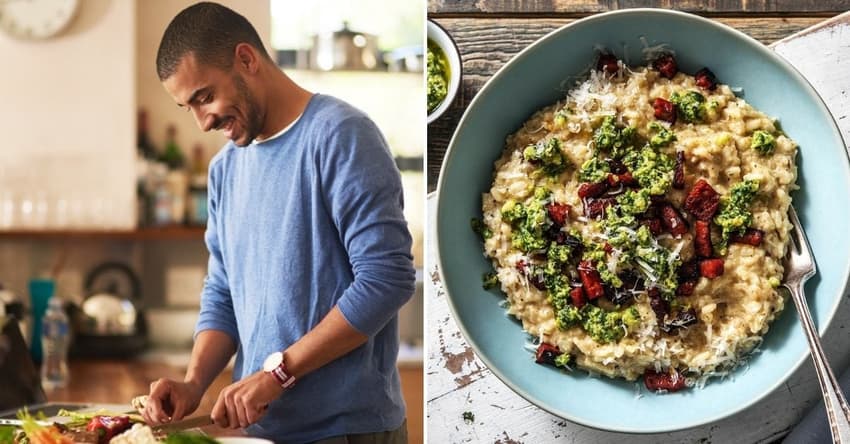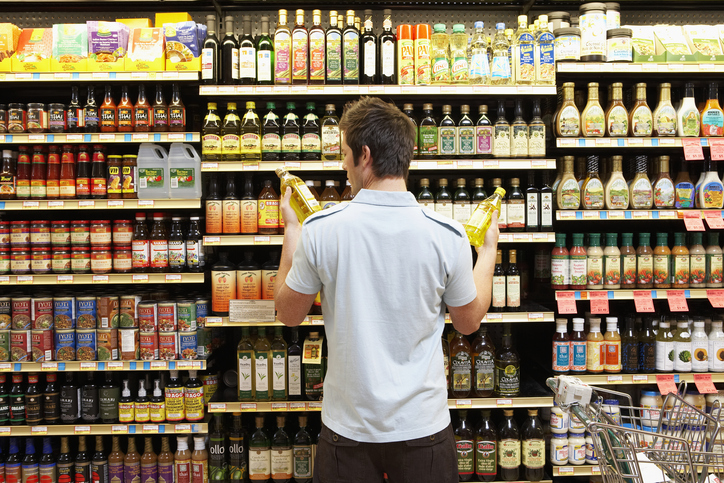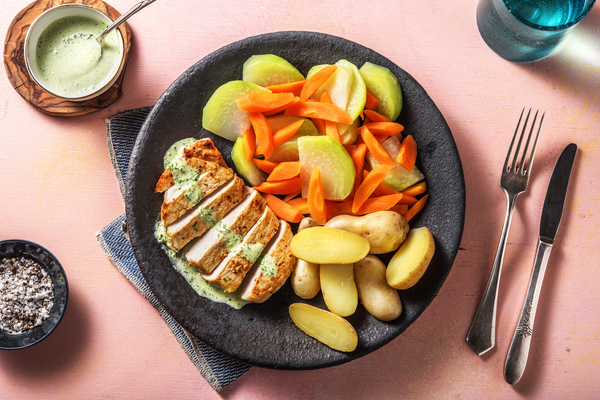How to eat healthily and sustainably in Germany, Austria and Switzerland
If you live in Germany, Switzerland or Austria, food advertisements featuring pristine Alpine glades, wholesome food and sporty types clad in lycra may be hard to escape.

But you don’t have to be an Olympic downhill skier to focus on healthy eating and leaving less of a mark on the environment. The Local, in partnership with HelloFresh, presents a few simple tips to help you eat in a healthy, sustainable manner, with a minimum of fuss. Whether your focus is on cutting calories, carbon emissions or both, read on.
Reader offer: save €45 on your first four HelloFresh boxes in Germany (use code HFTLCLDE), or get discounts in Austria (code HFTLCLAT) or Switzerland (code HFTLCLCH)
Reasons for reflection
You now see recycling stations on almost every street, and we’re often reminded that an increasing amount of our packaging can and should be recycled. We can’t help but be prompted to reflect on how we could be more responsible, as well as healthier citizens.
In terms of sustainability, the German government has already pledged to halve food waste by 2030, while Austria and Switzerland have also put into action plans to tackle the problem over the next decade.
When it comes to healthy eating, one need only look to the bewildering number of ‘Bio’ supermarkets lining the streets of even the most modest town across the German speaking lands. Each of the many chains promises fresh, organic food, sourced ethically, and this ‘Bio boom' is worth approximately €9 billion each year.
Sounds ideal for those of us wanting to make a change, right? For the average German-speaker, sure. However, if you are of an international background, the local ‘Bio’ can be a rather overwhelming experience.
A recipe for confusion?
Firstly, consider their often labyrinthine layouts. In their rush to seem ‘folksy’ and not unlike the local farmer’s market, these stores can change how you navigate around them on what seems a monthly basis. Even the most hardened shopper may be left confused. You may almost feel you need to obtain a map of the store in order to be sure of making it out!
It pays to remain calm, however. As much as these ‘Bio’ supermarkets like to shift their wares around, you can rest assured that the staples such as bread, milk, cheese and meat will be placed at the edges of the store, requiring you to work through other aisles to access them.
But then, there’s the truly staggering number of varieties available for many ingredients, mostly trading on their location of origin. If you end up scratching your head as to just how they all differ, you’re not alone.
Photo: Getty Images
You may, for instance, find a truly impressive variety of flours for baking, with precious little explanation of how each is different. You could always use an app such as Google Translate, with its live photo function, to translate the German text on packaging into English or your preferred language. That's if you have the time and the patience!
Finally, another hurdle to shopping in your local ‘Bio’ can be, well, other customers. Anybody who has spent much time in the German-speaking world will understand how judging others could be considered a national pastime. A withering glance at your trolley can sometimes turn a quick grocery run into a gruelling experience.
Save on your first four HelloFresh boxes in Germany (use code HFTLCLDE), or get discounts in Austria (code HFTLCLAT) or Switzerland (code HFTLCLCH)
Exploring your options
When food shopping becomes a chore, there are other options to help international residents in Germany, Switzerland and Austria eat well without wasting time, money or food.
Germany is the home of the meal kit – the market leader being HelloFresh. Founded in Berlin in 2011, HelloFresh meal kits have spread to 14 countries around the world, offering a variety of plans. Each week, customers receive a certain amount of fresh fruit, vegetables and meat, along with recipes for turning them into meals. Looking to lose weight in the New Year? You can also get low carb options and recipes with 20 percent fewer calories.
Photo: HelloFresh
Most large German cities also have both food-sharing websites and anti-food waste apps that allow those who are willing to be flexible to pick up either raw ingredients or pre-cooked food. If you live outside the major cities, look for the ‘honesty stands’ outside homes and by the side of the road in many rural areas of Germany. These offer cheap, fresh produce while supporting those around you.
As the world weathers the coronavirus pandemic, however, you may want food delivered to your door – such as meal kits that can help you continue to eat well while maintaining social distancing. Over the last few years, HelloFresh has made a commitment to not only source local ingredients from small producers, but also to reduce the amount of waste produced in distribution.
Indeed, compared to 12 leading global food retailers, the company now produces 66 percent less food waste per euro of revenue. In terms of emissions from electricity and gas, HelloFresh uses 71 percent less than the average produced by those retailers.
Furthermore, each HelloFresh meal kit is made of a combination of recycled and virgin fibres, and can be easily folded up for recycling collection – a huge bonus in recycling-mad Germany and Austria. The provided paper bags are compostable, and the insulating cardboard and plastic bags are all suitable for recycling.
In Germany, Austria and Switzerland, there are many ways to eat healthily and sustainably. If you’d like a helping hand, why not try HelloFresh? Save €45 on your first four HelloFresh boxes in Germany (use code HFTLCLDE), or get discounts in Austria (code HFTLCLAT) or Switzerland (code HFTLCLCH).
This content was paid for by an advertiser and produced by The Local's Creative Studio.



Join the conversation in our comments section below. Share your own views and experience and if you have a question or suggestion for our journalists then email us at [email protected].
Please keep comments civil, constructive and on topic – and make sure to read our terms of use before getting involved.
Please log in here to leave a comment.